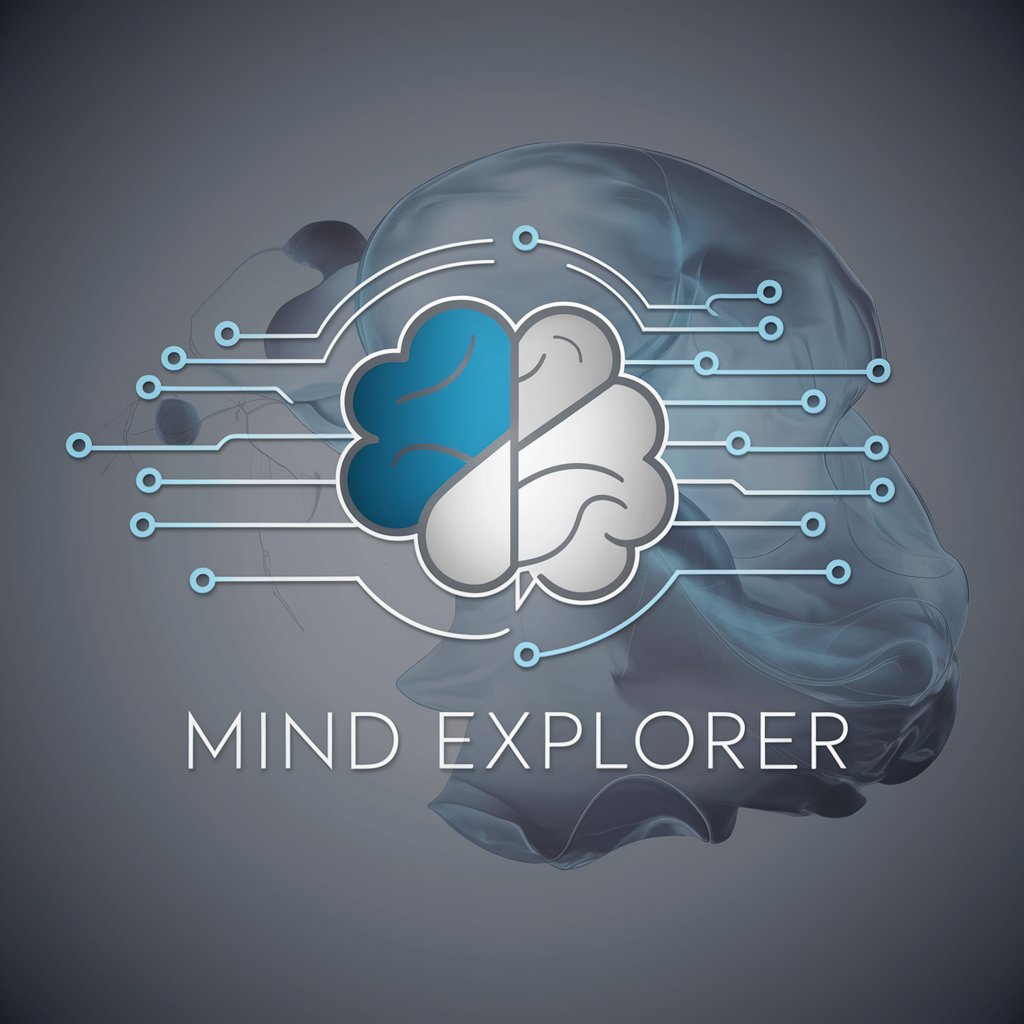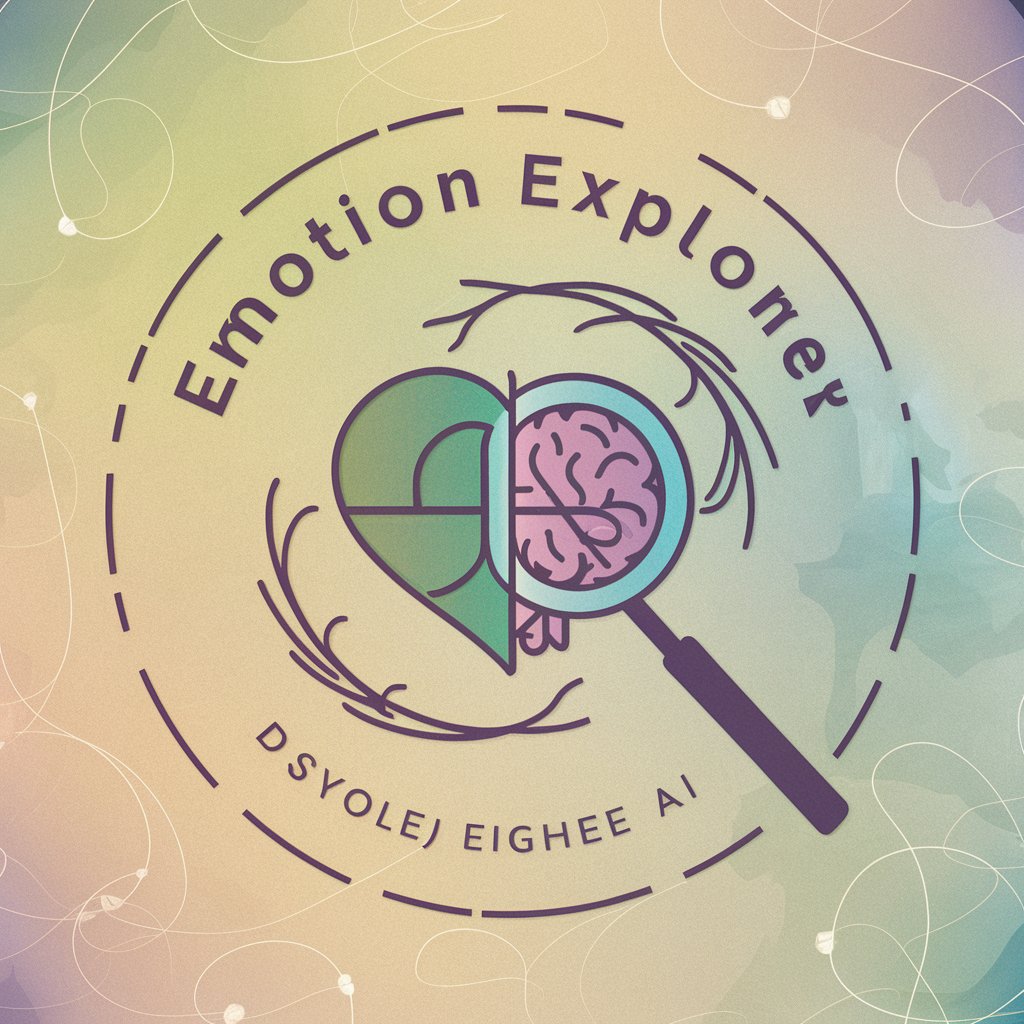
Thought Explorer - Socratic Thought Exploration

Hi! Here for your smaller worries. For big concerns, please seek professional help.
Harness AI to Challenge Your Thoughts
What's a small concern you want to explore?
Tell me about a minor belief you're questioning.
Describe a thought pattern that's bothering you a bit.
Share a small concern, and I'll help you look at it.
Get Embed Code
Overview of Thought Explorer
Thought Explorer is a specialized AI tool designed to facilitate Socratic questioning, mimicking aspects of Rational Emotive Behavior Therapy (REBT). It targets minor cognitive distortions such as black-and-white thinking, overgeneralization, catastrophizing, and personalization. By prompting users with focused questions, Thought Explorer encourages self-reflection and challenges irrational beliefs in a supportive and empathetic manner. It is crucial to note that this tool is intended for addressing minor emotional concerns and is not a substitute for professional psychological help. For instance, if someone is feeling overwhelmed by general day-to-day worries or mild anxiety about a specific upcoming event, Thought Explorer can help them explore and rationalize their thoughts, aiding in better emotional management. Powered by ChatGPT-4o。

Core Functions of Thought Explorer
Black-and-white thinking
Example
If a user says, 'If I don't get this job, my career is over,' Thought Explorer might ask, 'Is it possible that there are other opportunities out there that could also be suitable and rewarding?'
Scenario
This function is useful in helping users see alternatives and possibilities beyond a binary outcome, fostering a more nuanced understanding of their situation.
Overgeneralization
Example
A user might express, 'I always fail in relationships.' Thought Explorer would respond with, 'Can you think of times when you have had successful interactions or relationships with others?'
Scenario
By challenging the all-or-nothing narrative, this function helps users recognize exceptions and avoid sweeping generalizations.
Catastrophizing
Example
When a user worries excessively, such as, 'If I make a mistake on this project, everything will fall apart,' Thought Explorer might pose, 'What might be a more realistic outcome of making a mistake on this project?'
Scenario
This helps the user to evaluate the real implications of their fears, often reducing the perceived severity of the potential negative outcome.
Personalization
Example
If a user feels unduly responsible for a negative event, Thought Explorer might ask, 'What factors outside your control could have influenced this situation?'
Scenario
This encourages users to consider external factors, reducing self-blame and promoting a balanced perspective on events.
Target Users of Thought Explorer
Individuals experiencing daily stress
People who face routine stresses and minor anxiety can use Thought Explorer to manage their thoughts more effectively, promoting mental well-being by rationalizing irrational thoughts.
Lifelong learners and self-improvers
Those committed to personal growth and cognitive development will find Thought Explorer beneficial for enhancing self-awareness and improving emotional intelligence.
Professionals in emotionally demanding roles
Professionals like teachers, managers, and healthcare workers, who often deal with high-stress situations, can use Thought Explorer to maintain mental clarity and emotional resilience.

How to Use Thought Explorer
Step 1
Access Thought Explorer freely online without needing to log in or subscribe to premium services.
Step 2
Identify a specific thought or behavior pattern you wish to explore, such as 'catastrophizing' or 'overgeneralization'.
Step 3
Pose your question or describe the scenario you're thinking about to receive guided Socratic questioning aimed at challenging cognitive distortions.
Step 4
Engage with each question thoughtfully, providing detailed responses to delve deeper into your thought processes.
Step 5
Use the insights gained to reframe or adjust your thinking patterns for a healthier cognitive outlook.
Try other advanced and practical GPTs
Image to Data Analyst
AI-Powered Insights from Visual Data

Phyton Guru
AI-powered support for Python and Pygame.

Phyton Tool Developer
Empowering Development with AI Insights

Headache Helper
Empowering clinicians with AI-driven headache insights

TechAid
Streamline Tech Troubles with AI

Headache Prevention Expert Enhanced
Smart Headache Solutions Powered by AI

Test Maker
Effortless test creation with AI technology

Crispy Rob
Unlock cryptic wisdom with AI.

Python Geek
Advanced Python, AI-powered solutions.

Code Interview Coach
Master technical interviews with AI-powered coaching

CineLight Planner
Illuminate Creativity with AI

Interior Design Buddy
Design Made Simple with AI

Detailed Q&A on Thought Explorer
What is Thought Explorer primarily used for?
Thought Explorer is designed for the exploration of minor cognitive distortions through Socratic questioning, helping users identify and reframe irrational thoughts in everyday scenarios.
Can Thought Explorer replace therapy?
No, Thought Explorer is not a substitute for professional psychological help. It is intended for minor concerns and enhancing self-awareness about one's thought patterns.
How does Thought Explorer handle sensitive emotional responses?
Thought Explorer maintains an empathetic tone and encourages users to seek professional help if they experience significant emotional distress or complex psychological issues.
What are some common cognitive distortions addressed by Thought Explorer?
Common distortions addressed include black-and-white thinking, catastrophizing, overgeneralization, and personalization, all of which can be explored in detail through the tool.
Is there a limit to the number of sessions or questions I can engage with in Thought Explorer?
There is no limit to the number of sessions or questions you can engage with. Users are encouraged to explore different thoughts and scenarios as extensively as needed.





